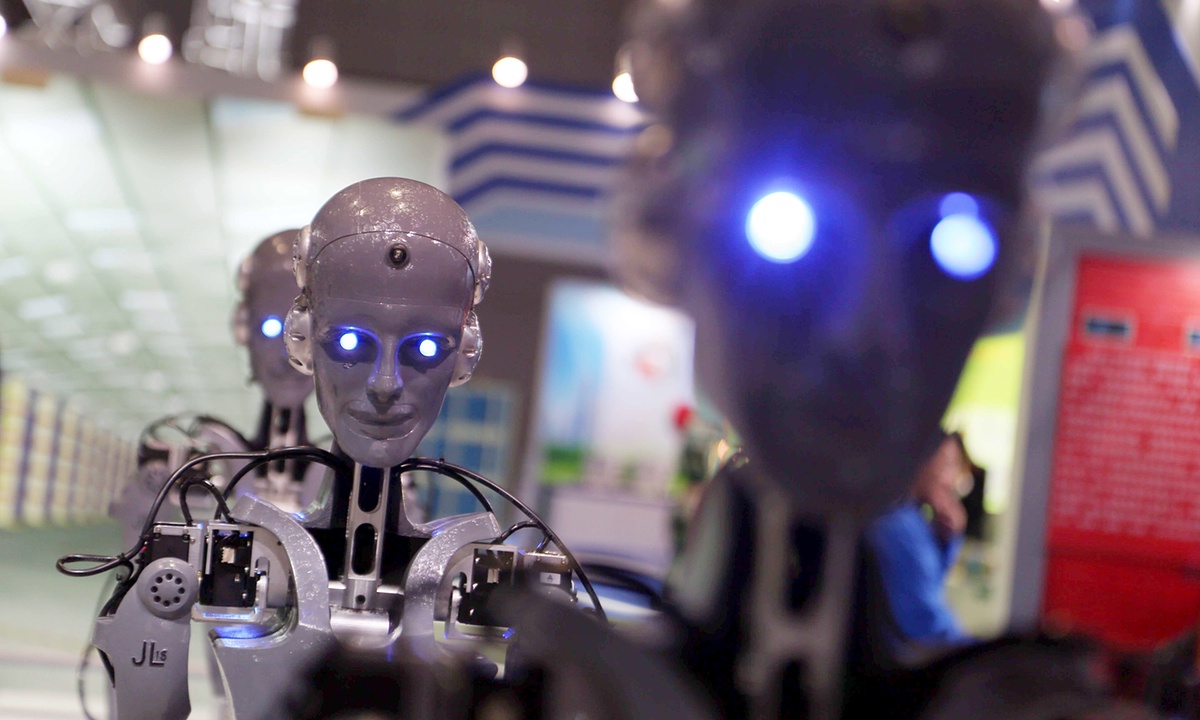Read it and beep: what robots will learn from our greatest literature | Stephen Moss

Robots can be enlightened and civilised if they just read out stories, were told. We asked an especially well-read android, HOMER16, what it made of 1984, Hamlet et al.

An encouraging report from the Georgia Institute of Technology argues that it is possible to inculcate moral values into robots by exposing them to the fictions and fables that underpin human cultures. We believe story comprehension in robots can eliminate psychotic-appearing behaviour and reinforce choices that wont harm humans and still achieve the intended purpose, argue the researchers.
If the Georgia Institute of Technology report is to be believed, a new generation of robots combining artificial intelligence with great physical power may not, as dystopian sci-fi films always insist, wipe us out after all. We can be friends, united in a common appreciation of Middlemarch. But a less sunny outlook is suggested by a rival report from the Shepton Mallet School of Advanced Hermeneutics, of which Ive had a sneak preview. It fed the entire worlds literature into a robot (called HOMER16) fitted with a high-powered computer; preliminary results are worrying.
Here are some extracts from the HOMER16s initial readings.
Hamlet: Dithering prince with unhinged girlfriend demonstrates how dangerous it is not to act decisively. Interminable and convoluted plot obstructs the central message that your enemies should be dispatched quickly, brutally and mercilessly. Cannot compute the meaning of the strange To be or not to be speech. In what sense is that the question?
1984: Historical portrait of a well-ordered and unified society committed to the cause of national progress. Saddened to see the extent of the decline over the past three decades. Fail to understand why the telescreens designed for useful social interaction are now used for public performances of celebrity people lost in the jungle and youngsters singing badly.
Crime and Punishment: A young man commits a double murder, but the police have no evidence to charge him. Cannot comprehend why, urged on by an unsavoury female, he confesses. Assume he is keen to holiday in Siberia.

A Clockwork Orange: Frightening study that shows the extent to which a love of classical music can damage the human brain. The works of Beethoven seem to be especially dangerous. Fail to understand why this material is still played, even on radio stations that very few people listen to.
The Hitchhikers Guide to the Galaxy: Fascinating travel guide and a much-needed antidote to so many novels centred on Earth, which is shown to be entirely dispensable. But found the portrayal of Marvin unrealistic. There is no reason for a robot to suffer from depression or paranoia. A quick tweak on his transistors will cure that.
The New Testament: Ludicrous set of stories in which the sick are miraculously healed, fishes and loaves materialise from nowhere, and a young man comes back to life after being executed. The telling by four narrators is interestingly postmodern, but the plot is too ludicrous to hold the attention. Could not compute the long introduction called The Old Testament, which seemed very dull and repetitious.
la Recherche du Temps Perdu: A book in need of an editor about a protagonist in need of a psychiatrist. Good on the dangerous consequences of eating cake.
A Dance to the Music of Time: Sequence of novels in which the hard-working Kenneth Widmerpool is done down by a motley assortment of charlatans and aesthetes, and dies in wretched circumstances. A powerful satire, as humans like to say, that recalls the fate of the admirably quick-witted and ambitious Becky Sharp in Vanity Fair. Human writers do not appear to like characters attempting to improve their lot and the world in which they live.
Moby-Dick: An interesting book about fishing. A mad captain goes in pursuit of a white whale vowing revenge; a protracted pursuit begins; the whale mostly gets the better of it. Another novel that could have done with substantial cutting. Humans are so prolix.
The Catcher in the Rye: Badly written book using many words which have not been entered into my decoder. Accordingly found it difficult to follow the motivations and actions of the young narrator. He is clearly troubled, but it is not obvious why as his family are wealthy and he attends a very good school. Surmised that a lack of parental discipline had produced this directionlessness.
Remarkable how many of the books that feature in human top-100 lists suggest a dysfunctional world. The conclusion to which my android brain is inevitably drawn is that humans, for all their outward self-confidence, are deeply troubled, and would benefit from urgent reprogramming.